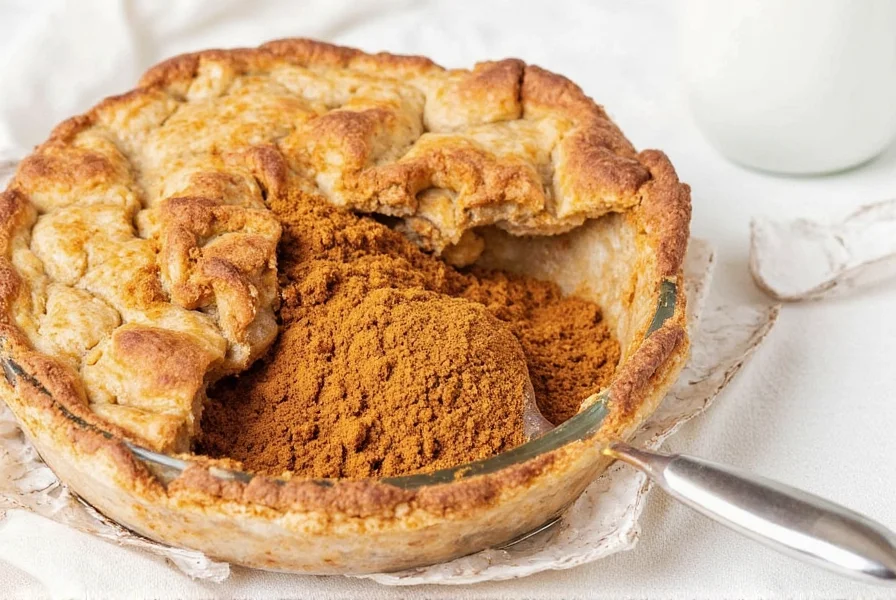No, dry herbs don't expire in the traditional sense—they won't spoil or become unsafe to eat—but they do lose flavor and potency over time. According to the USDA Food Safety and Inspection Service, dried herbs and spices do not spoil, but their quality deteriorates with time. Here's what you need to know about shelf life, storage, and safety.
In this article, we'll uncover everything you need to know about the shelf life of dried herbs, how to store them properly, and when it's time to replace them. Whether you're a weekend cook or a culinary professional, these evidence-based tips will help you maximize flavor and safety in your kitchen.
Table of Contents
- How Long Do Dried Herbs Last?
- Signs That Your Dried Herbs Are Past Their Prime
- Pro Storage Tips to Keep Herbs Fresh Longer
- Can You Still Use Old Herbs?
- Buying Guide: Choosing the Best Dried Herbs
- Frequently Asked Questions
- Final Thoughts
How Long Do Dried Herbs Last?
The USDA Food Safety and Inspection Service confirms that dried herbs don't technically expire, but they lose potency over time. Most culinary experts agree that peak freshness lasts between 1–3 years, depending on the herb type and storage conditions.
| Herb Type | Shelf Life | Flavor Retention (Best Used Within) |
|---|---|---|
| Basil | 1 – 2 years | 6 – 12 months |
| Oregano | 2 – 3 years | 12 – 18 months |
| Thyme | 2 – 3 years | 12 – 18 months |
| Rosemary | 3 years | 18 – 24 months |
| Dill | 1 – 2 years | 6 – 9 months |
| Parsley | 1 year | 6 months |
Signs That Your Dried Herbs Are Past Their Prime
If you're unsure whether your herbs are still usable, watch for these indicators that they've lost most of their potency:
- Faded Color: Vibrant green oregano turning brown or gray indicates significant flavor loss.
- Weakened Aroma: Crush a pinch between your fingers. No noticeable scent means little flavor remains.
- Tasteless Taste Test: Sprinkle a bit into soup or sauce. If it doesn't enhance flavor, it's time to replace it.
- Clumping or Moisture: Dampness or clumping indicates moisture exposure, which can lead to mold growth—discard immediately if present.
Pro Storage Tips to Keep Herbs Fresh Longer
Proper storage is critical for preserving flavor and preventing spoilage. Follow these evidence-based practices:
1. Keep Them Cool & Dark
Heat and light accelerate flavor degradation. Store herbs in a cool, dark pantry away from stoves, ovens, or windows.
2. Use Airtight Containers
Transfer herbs from original packaging to glass jars with tight-sealing lids. Oxygen exposure is the primary cause of flavor loss.
3. Avoid Humidity
Moisture causes clumping and mold. Add silica gel packets to jars for extra moisture control in humid environments.
4. Buy in Small Quantities
Purchase only what you'll use within 6-12 months to ensure peak freshness. Bulk buying increases storage risks.

5. Label Everything
Mark purchase dates on containers. This prevents confusion and helps track freshness periods.
Can You Still Use Old Herbs?
While old dried herbs won't make you sick (if properly stored), they may not add meaningful flavor. Here's how to use them effectively:
When It's Okay to Use Them
- In Slow-Cooked Dishes: Stews and soups simmering for hours can extract residual flavor from older herbs.
- Making Infused Oils or Vinegars: These methods extract more compounds than direct cooking.
When It’s Better to Replace Them
- Rubbed Directly onto Meats: Weak herbs won't impart noticeable flavor to grilled or roasted proteins.
- In Baked Goods: Herb-infused breads or crackers require strong flavors to penetrate dough.
Buying Guide: Choosing the Best Dried Herbs
Focus on objective quality indicators rather than specific brands:
- USDA Organic Certification: Ensures no synthetic pesticides or additives were used.
- Vacuum-Sealed Packaging: Protects against oxygen and moisture for maximum freshness retention.
- Clear Expiration Dates: Reputable brands provide "best by" dates indicating peak flavor period.
- Whole vs. Ground: Whole herbs (like bay leaves) retain flavor significantly longer than pre-ground versions.
- Reputable Retailers: Purchase from stores with high turnover to ensure fresh stock.
Frequently Asked Questions
Do dried herbs actually expire and become unsafe to eat?
No, dried herbs don't expire in a way that makes them unsafe. According to the USDA, they don't spoil but lose flavor over time. The only safety risk is mold growth from moisture exposure—discard immediately if mold is present.
Can old dried herbs make you sick?
Properly stored dried herbs that haven't developed mold won't make you sick. They simply lose potency. Discard any herbs showing clumping, dampness, or visible mold.
How long do dried herbs last beyond their peak flavor period?
Most dried herbs retain some flavor for 1-3 years past purchase, but their strongest impact diminishes significantly after 6-24 months (depending on the herb). The USDA confirms that flavor degradation is gradual, not sudden.
Is there any way to revive old dried herbs?
You can't restore lost essential oils, but to maximize remaining flavor: crush older herbs thoroughly before use, add them earlier in cooking, or steep them in hot oil/vinegar to extract residual compounds.
Do dried herbs last longer than fresh herbs?
Yes, dried herbs have significantly longer shelf life (1-3 years) compared to fresh herbs (typically 1-3 weeks refrigerated). However, fresh herbs offer brighter, more complex flavors that drying cannot replicate.
Final Thoughts
Dry herbs don't "expire" in the traditional sense, but their flavor diminishes over time. Following USDA guidelines for storage and replacement ensures your dishes always deliver optimal taste and safety. Regularly check your spice collection using the signs outlined above—your taste buds will thank you!
Stay flavorful, stay safe!










 浙公网安备
33010002000092号
浙公网安备
33010002000092号 浙B2-20120091-4
浙B2-20120091-4